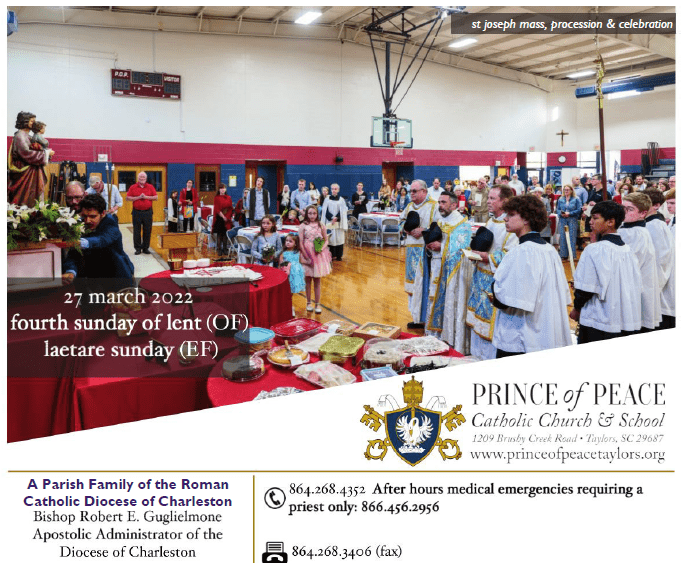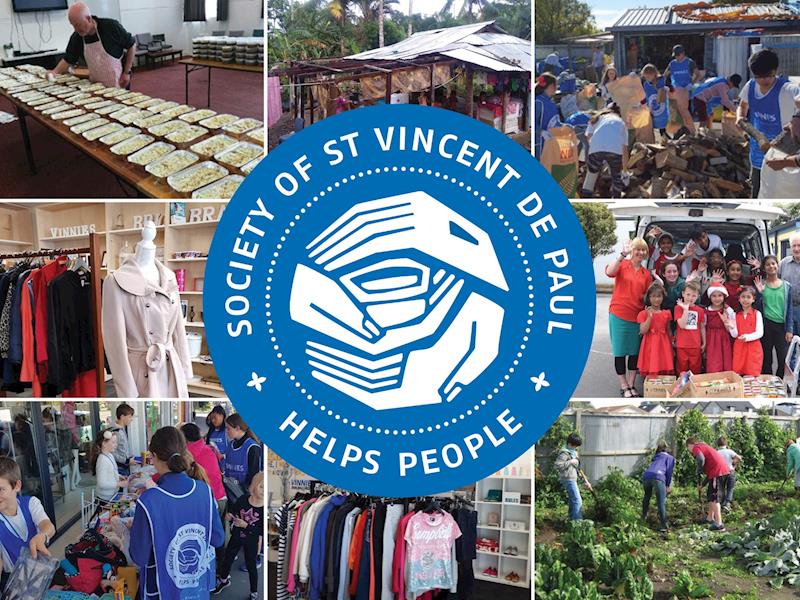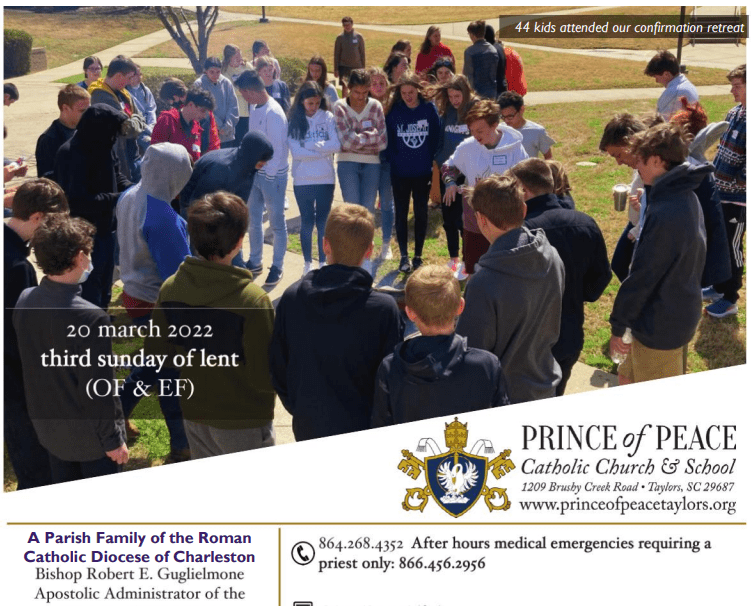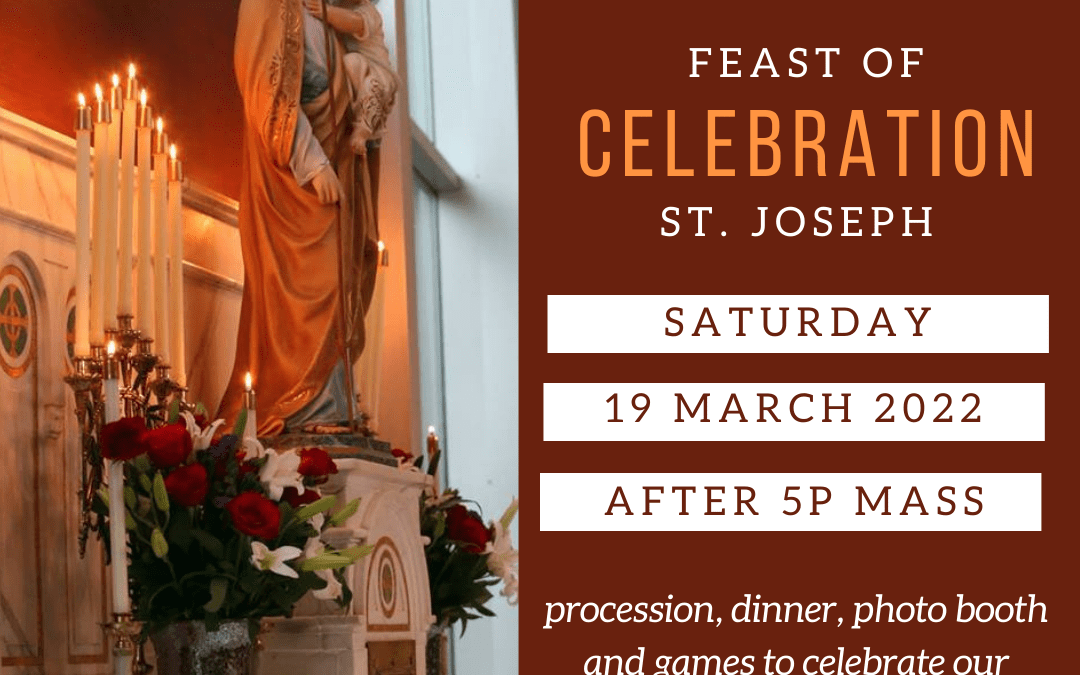
by popadmin | Mar 27, 2022 | Bulletin
Click to read this weekend’s bulletin: 27 March 2022 Bulletin

by popadmin | Mar 20, 2022 | Kids
-
Prince of Peace is thrilled to once again offer a Summer Academic and Enrichment Camp for rising K5 through 8th grade students! This camp experience will target math and literacy skills and prepare students for a successful start next Fall. The academic program is driven from Achieve Literacy and Mathematics, as well as curricula from Prince of Peace. The enrichment programing is STEM Robotics driven from the Engineering Design Process. Ultimately, the experience would balance academic enrichment and learning with fun and engaging activities.
- All are welcome to Summer Art Camp with Marilyn Alber. A great way to start your summer and get creative. Registration deadline is Friday, May 27th. Registration forms are available at the school office or email Marilyn Alber at mmalber@att.net.
- Two weeks to choose from [6/13- 6/17] or [6/20 – 6/24] for students entering 1st – 8th. (Limit 8-10 students)
- Classes are held for 2 hours a day Monday through Friday. (Students 1st-3rd (10:00-12:00)) (Students 4th-8th (1:00-3:00)).
- Fees for one week session is $160 (Materials provided).
- Classes will be held in the Walsingham Building – Art Room.
- Our wildly successful Vacation Bible School, Totus Tuus, will be returning 10-15 July 2022! Mark your calendars now for all entering 1st-12th graders (evening program for 7-12th graders). We have ONLY 90 slots for our elementary program. Please contact Maria Barontini with questions!
-
- Host! Let Maria Barontini know if you are interested in hosting the Totus Tuus team. Two families needed (2 males or 2 females).
- Meals! 4 dinner hosts are needed for the Totus Tuus team. Host in your home, at a restaurant or with delivery! 4 team hungry team members will be grateful.
- The elementary program is waitlist only.
- Attention elementary and middle school parents: Prince of Peace is once again offering our popular Summer Choral Theatre, June 12-18. Participants will join with others from our parish and school in learning and performing a faith-building, fully costumed musical drama. Each day is an all-inclusive activity that will include snacks, social activities, and even outdoor time, in addition to the rehearsals of singing, staging, and basic choreography. Your child won’t want to miss this exciting week! There are only 40 spots available for each session, so make sure to register your child for this opportunity to enjoy a week of fun, singing, acting, and games!
- Program Fee- $85 for one child, $150 for two children, $200 family maximum (includes instruction, t-shirt, themed snacks, and materials)
- Registration is open exclusively to Prince of Peace families through March 31. Registration will open to all others beginning April 1. All registrations are due no later than May 10.
- See flyer.
- Contact Eranga Goonetilleke eranga.goonetilleke@popcatholicschool.org
- Dribble for Destiny Summer Basketball Camp is 5-8 July from 9a-12n for ages 8-13 boys and girls. Fee: $119 includes free t-shirt and ball; 2 ball dribbling, passing, shooting, ball handling, video, daily contests, and daily devotions. THIS IS A 4 DAY CAMP THAT BEGINS ON A TUESDAY. MAXIMUM 50 ATHLETES. SIGN UP AND PAY NOW TO RESERVE YOUR SPOT. See registration form.
- Archery Camp is open to rising 4th-9th graders (parish & school). Camp is 27 June-1 July from 9a-11.30a. The cost is $90 for the 1st child, $80 for the 2nd child, and $70 for the 3rd+ child. Snacks are provided during camp. Registration packets are available in the parish office. Questions? Contact Coach Moreau bobby.moreau@popcatholicschool.org

by popadmin | Mar 20, 2022 | Ministries
The Saint Vincent de Paul organization here at Prince of Peace is in dire need of new members to fill leadership roles, volunteers, and New Vincentian members to help the families in need inside and outside of the parish.
We help parishioners and non-parishioners alike, though the help differs with our current resources. For Parishioners, we help towards one utility bill every month and food bags as needed. For non-parishioners, we help towards one utility bill every six months and food bags as needed. We see anywhere from 15-20 families each Monday by appointments from 11am to 1pm.
An average Monday would consist of prayers with the members of SVDP and the families in need. Our volunteers then help check-in families asking for all the information we need to help them and interview them to hear their stories. At times we are even a shoulder to cry on. Volunteers also help with preparing bags of food, helping find clothing or other donated items for these families, and carrying these items out to cars.
Every second Monday of the month, we ask that our members of SVDP stay for a meeting to discuss any new or old business, food drives, monthly collections, upcoming programs such as the Thanksgiving and Christmas program and we are looking for a Spiritual advisor to strengthen of what we do and not forget what we represent.
Our leadership positions include President, Vice President, Treasurer, and Secretary. Most of these positions will need to be replaced this year ( Vice President and Secretary) due to people holding these positions for too long. If not, we will be forced to close our doors in the near future. You do not need prior experience for any of these positions aside from treasurer. We work as a team to get the job done and will help you understand these roles.
If God is calling you to come join our team as a volunteer please reach out to Maria Rauch to fill out a background check and complete the Safe Haven Program. Becoming a Vincentian member, you will also need to contact Maria and do the aforementioned items along with being an active member of any Catholic church and complete the Frederic Ozanam Orientation. For any questions, please contact Simone Imber (270-317-9550) or imber.simone@gmail.com).

by popadmin | Mar 20, 2022 | Bulletin
Click to read this weekend’s bulletin: 20 March 2022 Bulletin

by popadmin | Mar 18, 2022 | Events, Parish Life
Saturday, 19 March is the Feast of St Joseph and we’re celebrating!
- 5p Mass of St Joseph & Procession, a wonderfully unique way to honor the foster father of our Lord. Hymns and other musical pieces will offer a chance to sing together the glorious holiness of this mighty patron and spouse of the Blessed Virgin Mother!
- An Italian meal awaits with spaghetti, salad and rolls. Families are encouraged to bring a dessert to share. We’ll have fun with a Knights of Columbus photobooth, a game of “Kids Say The Darndest Things led by Gus Killough, and a craft sponsored by Home Depot.
If you’re unable to join us for Mass, please arrive at 5.50p for feasting and fun!
A giant thank you to our donors who made this event possible:
- Sciortino’s Trattoria & Pizzeria
- The Cat Clinic – Carolyn Anderson
- Marcel Farge
- Coldwell Banker Caine – Felicia Griggs
- Twin Falls Dentistry – Peter & Nicole McPherson
- McAfee Funeral Home – John McAfee
- Carole Harris
- Charles Ashworth
- Gregory Cullum Smith & Caitlin Davis Smith






Recent Comments